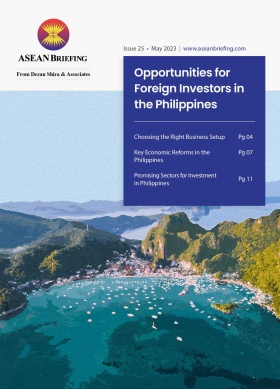Myanmar Implements Long-Awaited Minimum Wage Hike
Myanmar has increased the daily minimum wage rate after a five-year hiatus to 5,800 kyat (US$2.76) for an 8-hour day, from 4,800 kyat (US$2.28). The new rate impacts both public and private sector workers in the country and means employees will see a 20 percent increase from the previous salary. The previous minimum wage hike was implemented in 2018.
The new minimum wage rate is applicable as of October 1, 2023.
Myanmar’s military government implemented the reforms amid soaring inflation with the Asian Development Bank predicting that inflation reached 14 percent in September. In contrast, the developing Asia region could expect inflation to decrease to 3.6 percent from 4.2 percent.
The Southeast Asian nation has been brought to its knees due to the deepening internal conflicts brought upon by the military coup two years ago. In September, the government also announced a 30,000 kyat (US$14.29) monthly salary for military personnel.
Currency depreciation plays a big role in soaring prices
The military government’s choice to fix the exchange rate at 2,100 kyat to US$ 1 has led to a significant disparity in the rates provided by money changers, ranging from 3,300 kyats to 4,000 kyats per dollar. This, in turn, has contributed to the sharp increase in food prices.Curre
China continues to be a top foreign investor
Despite foreign investors pulling out of Myanmar following the coup, China continues to step up its engagement with the Southeast Asian nation.
China has an estimated 597 investment projects, valued at over US$21 billion with the majority being in the electricity sector and accounting for 23 percent of total foreign investment in Myanmar.
According to the Institute for Strategy and Policy-Myanmar, between February 2021 — when the military took over the government — to March of this year, Myanmar approved US$5.7 billion in foreign investment, with approximately US$3 billion coming from China.
Chinese companies are also developing Myanmar’s port and railway infrastructure in addition to infrastructure development under the China-Myanmar Economic Corridor (CMEC). If the CMEC succeeds, China can shift its manufacturing goods through Myanmar to South Asia, West Asia, East Africa, and Europe, providing a shorter route for Chinese businesses. Further, it allows China to efficiently import raw materials from Myanmar. The pipeline connects Rakhine, Magway, Mandalay, and Shan State to Yunnan Province, China.
Myanmar and China have over 700km of crude oil and gas pipelines. In 2022, Myanmar exported approximately US$1.43 billion worth of natural gas.
The future of Myanmar’s economy remains intertwined with international partnerships, particularly with China, and the nation’s ability to address ongoing internal conflicts and restore stability. The recent increase in the minimum wage, while providing some relief to workers, is just one step on the challenging path toward economic recovery and prosperity for Myanmar.
About Us
ASEAN Briefing is produced by Dezan Shira & Associates. The firm assists foreign investors throughout Asia and maintains offices throughout ASEAN, including in Singapore, Hanoi, Ho Chi Minh City, and Da Nang in Vietnam, in addition to Jakarta, in Indonesia. We also have partner firms in Malaysia, the Philippines, and Thailand as well as our practices in China and India. Please contact us at asean@dezshira.com or visit our website at www.dezshira.com.
- Previous Article ASEAN, Canada Edge Closer to Concluding Free Trade Agreement
- Next Article Indonesia Market Prospects for EV Sales and Manufacturing






